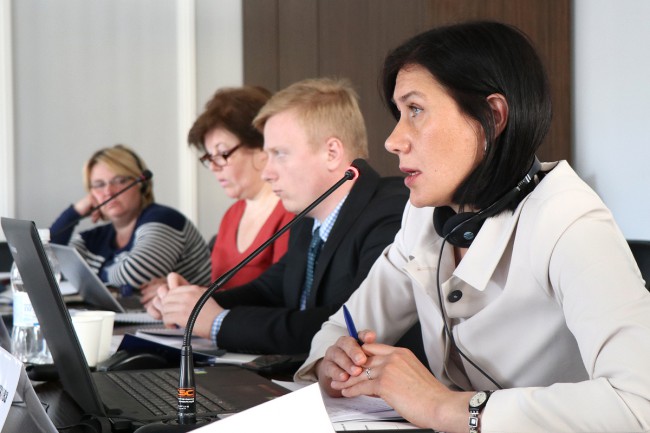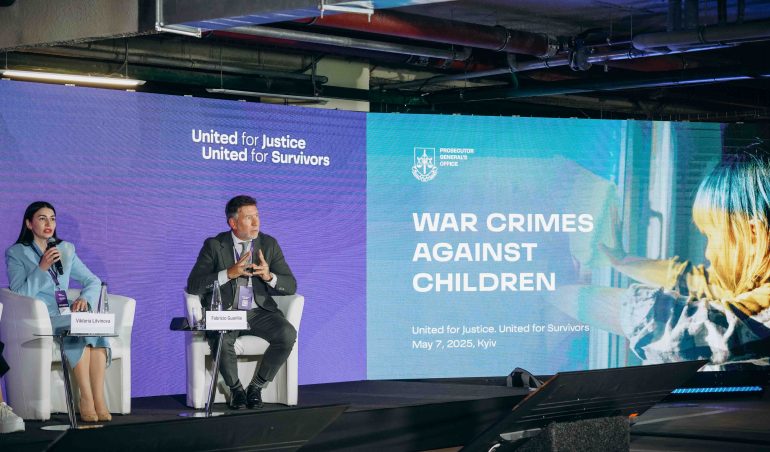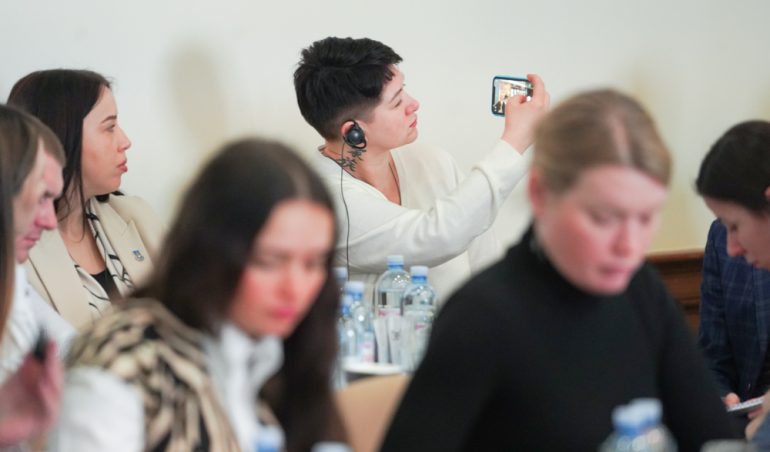Compensation for victims of violent crime: time for Ukraine to meet its obligations?
October 23, 2017

In 2016, there were 11,500 victims of violent crimes in Ukraine. The statistics are horrifying enough before one thinks about what that means for the individuals involved. Violent crime is a term that encompasses a wide range of criminal acts including murder, bodily injuries, sexual and physical abuse. More often than not, the effect of these crimes on their victims lasts a lifetime.
Given the lasting consequences – physical, psychological and very often financial – that victims of violent crimes face, it is only right that they should receive some sort of compensation. It is frequently difficult to obtain compensation from the perpetrators of violence – many have no assets. Consequently, in the EU all countries have some sort of state victim compensation scheme. In Ukraine however, no such scheme exists. We would argue that it is high time that such a system is put in place.
Why a state compensation scheme is needed
Imagine the situation: burglars break into someone’s house to steal money. They are confronted by the owner of the house, and after a struggle, the owner is killed.
The homeowner had a family, who have lost not only a relative, but the family’s main source of income. After the investigation is concluded, the family submits a so-called ‘civil claim’ (a compensation claim) to the burglars who were identified and arrested. After the burglars are convicted, the family goes to court. The court awards them 300,000 UAH for moral damage and 20,000 for material damage.
The burglars say they have no money to pay compensation. The State Executive Service investigates. It turns out that indeed, the burglars own no property, no cars, nothing that could be used to pay compensation. According to statistics, the majority of violent crimes are committed by people with few assets.
If a convicted criminal has no assets, then the only possibility to obtain compensation from them according to the law would be through their voluntary choice to work in prison. A part of their salary would then have to be withdrawn. In practice, withdrawals are small – 10, 20 hryvnias or, in the best case, 100-200 hryvnias per month. Moreover, even these small amounts are often not withdrawn because of a lack of work in prisons.
All this assumes that the burglars are found in the first place. The situation would be even more tragic if the burglars were not found at all or if there was only one burglar acting alone, and it turned out he was not criminally liable as a result of, for example, insanity.
The situation in the EU
The situation as regards compensation for victims of violent crime differs across the EU. But there is one common feature: a recognition that the state has a role in restoring the rights of victims.
This means that if the victim does not receive any compensation from the criminal, he will get at least part of it from the state. The compensation would be ensured by a specially created victim compensation scheme or fund.
There is also an important feature of the existing compensation schemes: they provide for a possibility to receive compensation before the offender is convicted. This helps to cope with the first negative consequences of the crime and provide psychological help, medical costs (if the victim was injured and survived) or even funeral costs.
The idea is that the state is to some extent responsible for the crime that happened. It may have failed in its crime prevention policy or criminal justice system. Of course, the state is not fully responsible for what happened, but a link can always be found to a bigger or smaller extent. This is one of the ideas behind state compensation mechanisms.
The situation in Ukraine
In Ukraine, there is no state compensation mechanism for victims of violent crimes. The legislative provisions of the Civil Code in this regard are controversial and have not worked in practice. Article 1177 of the Civil Code refers to a special law that has to establish how the damage caused to health or life will be compensated by the state. However, this law has not been adopted so far.
In 2005, Ukraine signed the European Convention on the Compensation of Victims of Violent Crimes, which would oblige Ukraine to create a state compensation scheme for victims of violent crimes. However, the Convention has not been subsequently ratified, meaning that Ukraine has no international obligation to create a compensation mechanism.
The main reason for this is a lack of funding.
Where the money could come from
According to our preliminary calculations, the minimum sum to establish a state compensation mechanism would be approximately 200-300 mln hryvnias. When put in the context of the life-altering crimes the fund would compensate, it is not so much money. Moreover, the criminal justice system is often evaluated by citizens based on how it treats crime victims. From this viewpoint, it would be a modest price to pay to increase public trust and confidence in the criminal justice system in Ukraine.
Where would the money come from? In addition to money from the state budget, the scheme could be funded out of penalties such as fines and correctional labour (monthly withdrawals to the state budget from the salary of offenders).
Since this may not be enough, another option the EU Advisory Mission Ukraine (EUAM) has proposed is the mechanism used in Sweden: all those convicted in criminal cases have to pay a small contribution to the victim compensation fund. These contributions lead to a well-funded compensation scheme, and the financial burden on convicts is relatively insignificant.
Some next steps
EUAM has been working on the problem for a few years now. In 2015, we advised the Government to ratify the European Convention on the Compensation of Victims of Violent Crimes and include formal provisions as part of the National Human Rights Action Plan 2015-2020 to create a state victim compensation fund.
Following that, the Ministry of Justice drafted a law creating a state compensation mechanism. There were many discussions about what this mechanism should look like: who to compensate, amounts of compensation, whom to refuse… EUAM provided its comments on these issues to the Ministry of Justice and they have been successfully incorporated to the draft law. In the future, the exact amounts of compensation will have to be established by the Cabinet of Ministers.
In any case, the draft law does not make it certain that the compensation mechanism will actually be created. There was already an attempt in 2007 by the MoJ to put forward a draft law. At that time, the draft was not endorsed by the Ministry of Finance due to the lack of resources in the state budget. The current draft law risks a similar destiny, although the new draft is more balanced and sustainable because it proposes additional sources of funding.
Meanwhile, more than 10,000 victims each year are left alone without support. We, therefore, urge our partners in the Ukrainian government to push this issue forward as a priority.
This opinion piece was originally published in Ukrainska Pravda on 23 October 2017





